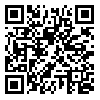1. Adams, J. A. Historical review and appraisal of research on the learning, retention, and transfer of human motor skills. Psychological Bulletin. (1978). 101, 41-74. [
DOI:10.1037/0033-2909.101.1.41]
2. Schmidt, R. A., & Lee, T. D. Motor Learning and Performance, From Principles to application. .Fifth Edition Human Kinetics. (2013). 260.
3. Magill, R. A. Motor Learning and Control: Concepts and Applications. (9th ed). New York: McGraw-Hill. (2010). 340 pp.
4. Schmidt, R. A., & Wrisberg, C. A. Motor learning and performance. (2008). 284-295.
5. Schmidt, R. A. Young, D. E. Swinnen, S. & Shapiro, D. E. Summary knowledge of results for skill acquisition: Support for the guidance hypothesis. Journal of Experimental Psychology: Learning, Memory, and Cognition. (1989). 15, 352-359. [
DOI:10.1037/0278-7393.15.2.352]
6. Salmoni, A., Schmidt, R A., & Walter, C. B. Knowledge of results and motor learning: A review and critical reappraisal. Psychological Bulletin. (1984). 95, 355-386. [
DOI:10.1037/0033-2909.95.3.355]
7. Wulf, G., & Shea, C. H. Understanding the role of augmented feedback. Skill acquisition in sport: Research, theory and practice. (2004). 121-144. 7.
8. Schmidt, R. A. Frequent augmented feedback can degrade learning: Evidence and interpretations. In Tutorials in motor neuroscience. Springer Netherlands. (1991). 59-75. [
DOI:10.1007/978-94-011-3626-6_6]
9. Wulf, G., & Schmidt, R. A. Average KR degrades parameter learning. Journal of motor behavior. (1996). 28, 371-381. [
DOI:10.1080/00222895.1996.10544606]
10. Yaung, D. E., & Schmidt, R. A. Augmented kinematic feedback for motor learning. Journal of motor behavior. (1992).24, 261-273. [
DOI:10.1080/00222895.1992.9941621]
11. Chiviacowsky, S., & Wulf, G. Self-controlled feedback: Does it enhance learning because performers get feedback when they need it? Research Quarterly for Exercise and Sport. (2002). 73, 408-415. [
DOI:10.1080/02701367.2002.10609040]
12. Chiviacowsky, S., & Wulf, G. Feedback after good trials enhances learning. Research Quarterly for Exercise and Sport. (2007). 78, 40-47. [
DOI:10.1080/02701367.2007.10599402]
13. Chiviacowsky, S., Wulf, G., Wally, R. & Borges T. Knowledge of results after good trials enhances learning in the elderly. Research Quarterly for Exercise and Sport. (2009). 80 .663-668. [
DOI:10.1080/02701367.2009.10599606]
14. Abbaszadeh A., Taheri H., Heirani A., Yousefi B. effect of procedures augmented feedback presentation (after successful and unsuccessful trials), on the learning and error detection capability, in force produce task. Journal of Movement Science & Sport. (2012), 2 (10), 3 (19); 99-110. (In Persian).
15. Ezrati Gilani A., Heirani A., Khazaei., a.a., Abbaszadeh A. the effect of self-control and bandwidth knowledge of results presenation on learning and error detection capability in shooting skill. Journal of Sport Bioscience Researches. (2011). 1(3); 51-62. (In Persian).
16. Badami, R.; Vaezmousavi, M.; Wulf, G.; Namazizadeh, M. Feedback after good trials enhances intrinsic motivation. Research Quarterly for Exercise and Sport, Washington. (2011). 82, 360-4. [
DOI:10.1080/02701367.2011.10599765]
17. Badami, R.; Vaezmousavi, M.; Namazizadeh, M.; Wulf, G. Feedback after good versus poor trials: Differential effects on self-confidence and activation. Research Quarterly for Exercise and Sport, Washington. (2012). 83, No. 2, pp. 1 [
DOI:10.5641/027013612800745275]
18. Badan, M., Hauert, C. A., & Mounoud, P. Sequential pointing in children and adults. Journal of Experimental Child Psychology. (2000). 75, 43-69. [
DOI:10.1006/jecp.1999.2522]
19. Chi, M. T. H. Age differences in memory span. Journal of Experimental Child Psychology. (1977). 23, 266-281. [
DOI:10.1016/0022-0965(77)90104-7]
20. Connolly, K. The nature of motor skill development. Journal of Human Movement Studies. (1977). 3, 128-143.
21. Lambert, J., & Bard, C. Acquisition of visuomanual skills and improvement of information processing capacities in 6- to 10-year-old children performing a pointing task. Neuroscience Letters. (2005). 377, 1-6. [
DOI:10.1016/j.neulet.2004.11.058]
22. Sullivan, K.J.; Kantak, S. S.; Burtner, P.A. Motor learning in children: feedback effects on skill acquisition. Physical Therapy. (2008). 88, p.720-32. [
DOI:10.2522/ptj.20070196]
23. Saemi. E.; Wulf. G.; Ghotbi. A., & Varzaneh. M. V. Feedback after good versus poor trials enhances motor learning in children. Rev. Bras. educ. (2011). 25 .681-673. [
DOI:10.1590/S1807-55092011000400011]
24. Connolly, K. Mechanisms of motor skill development. London: Academic Press. (1970). 2, 148-130.
25. Barclay, C .R, Newell, K .M. Children's processing of information in motor skill acquisition. J Exp Child Psychol. (1980), 30, 98-108. [
DOI:10.1016/0022-0965(80)90078-8]
26. Khodadost, H. Zareian, E. Khaleghi Arani, H. Najarian Nosh-abadi, R. Allah Mashreghi, R. Effect of Two Types of Feedback and Error Estimation on Error
27. Detection Capability in Continuous Tracking task. Biological Forum - An International Journal. (2015). 7(1): 198-204.
28. Liu, Z. The effect of visual information feedback and subjective estimation of movement production error on the acquisition, retention, and transfer of an applied motor skill. Microform Publications, University of Oregon. (1995).
29. Nieuwenhuis, S., Slagter, H. A., Alting von Geusau, N. G., Heslenfeld, D. G., & Holroyd, C. B. Knowing good from bad: Differential activation of human cortical areas by positive and negative outcomes. European Journal of Neuroscience. (20050. 21, 3161-3168. [
DOI:10.1111/j.1460-9568.2005.04152.x]
30. Ferrel-Chapus, C., Hay, L., Olivier, I., Bard, C., & Fleury, M. Visuomanual coordination in childhood: adaptation to visual distortion. Experimental brain research. (2002). 144 (4), 506-517. [
DOI:10.1007/s00221-002-1064-2]
31. Bruechert, L., Lai, Q., & Shea, C. H. Reduced knowledge of results frequency enhances error detection. Research Quarterly for Exercise and Sport. (2003). 74,467-472. [
DOI:10.1080/02701367.2003.10609116]
32. Lee, T. D., Swinnen, S. P. & Serrien, D. J. Cognitive effort and motor learning. Quest. (1994). 46, 328-344. [
DOI:10.1080/00336297.1994.10484130]
33. Hogan, J, C., & Yanowitz, B, A. The role of verbal estimates of movement error in ballistic skill acquisition. Journal of Motor Behavior. (1978). 23, 259-262.

 ، عبدالله قاسمی۲
، عبدالله قاسمی۲ 
 ، علی حیرانی۳
، علی حیرانی۳ 
 ، مهدی نبوی۴
، مهدی نبوی۴ 








